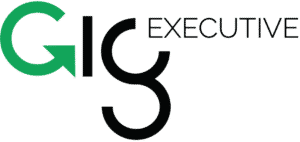The capability-first focus that could future-proof your business

The capability-first focus that could future-proof your business
This month CLA was grateful to be asked to partner on an AICD webinar with Future Leadership to present our perspective on future board capabilities.
We know that three of the top leadership challenges for 2023 include talent and skills acquisition, cyber risk requiring greater tech literacy, and the need to embed ESG proactively into our business models and supply chains.
While every organisation will face a dynamic set of complex emerging conditions. As AICD Chief Economist Mark Thirwell wrote in this month’s edition of Company Director, ‘we can’t even forecast what 2023 will have in store for us with any confidence’ let alone our longer-term horizons. However, a capability framework unlocks performance in an equally dynamic way.
What is the Future Leadership Capability Framework?
Our Future Leadership Capability Framework is based on 25 years of international research findings and framework development. CLA applies decades of real-world leadership experience to the research to define the requisite cognitive capability, personal attributes, emotions, and leadership mindsets required by high-potential individuals to succeed in a rapidly transforming working world.
Changes in emerging conditions require changes in the knowledge, skills, mindsets and behaviours we need around our leadership tables. We intentionally think about capabilities, as opposed to skills, because a capability is an umbrella term we can use as a hand to pick up a set of skills, mindsets, knowledge and behaviours. For example, while communication as a skill might mean we can have good conversations with our teammates, communication as a capability means we can successfully influence organisational change.

How is the Future Leadership Capability Framework used?
First, we need to be clear on emerging conditions. What does ‘high potential’ or ‘high performance’ look like within the specific organisational context? Then we can map the capabilities most significant for your team.
Incorporating a capability framework into the position brief, the selection and review process can give us the structure to think more expansively. We ourselves understand whether we’re clear on the future capabilities needed to enable high performance in an increasingly complex environment. We also see clients use the Capability Framework to form the basis of an organisational strategy around capability. It could form a part of the onboarding experience, as well as create a common language of leadership throughout the organisation.
The framework can be used as a tool to keep us accountable for asking ourselves questions as leaders. The framework sits within a context of: “How do I think”, “How do I connect”, “How do I treat others”, “How do I lead change”. In this way it can be a great tool for existing team members’ personal reflection, and ultimately, aggregated reflection.
Can a capability framework help future-proof my organisation?
Our Framework is focused at Board and Leadership Team level and has a behavioural matrix that then flows through every level of an organisation. Capability is a top-down build starting with leadership because ultimately, a culture of capability is a viable future-proofing strategy.
Shifting from an experience-first selection process to a capability-first selection process also removes a level of bias. We know that there is a correlation (though hard to quantify) between diverse teams and performance. Yet we also see the needle moving far too slowly on inclusion. For example, the AICD’s latest gender diversity progress report shows that women account for only 10% of all ASX 200 and ASX 300 chair roles, while they make up around 35% of directorships. Undeniably, gender is only one of many issues when it comes to diversity – noting the importance of intersectional diversity – yet it’s a clear example of where an expanded talent pool of capability fails to translate to better representation.
While there is no ‘silver bullet’ that will guarantee success from greater diversity on leadership teams, taking a capability approach reduces bias in three ways. Firstly, the traditional focus on prior experience is weighted toward opportunities afforded to the few, not the many. Secondly, capability arises not only from professional experience, but accounts for life experience more broadly. Thirdly, taking a capability-first approach, overlaid with a diversity lens, ensures we move beyond tokenism and reap the rewards of the true value of diversity; cognitive diversity.
Those leadership teams who invest the time and effort in understanding and building capability to deal with complex and evolving challenges reap significant benefits. Cultivating a learning and development mindset to scale up certain capabilities as required across the organisation helps leaders get over paralysis by analysis, creating a more inclusive culture geared towards performance.
If this sounds like you, please consider registering to walk through our Capability Framework with one of the CLA team. Register here.



